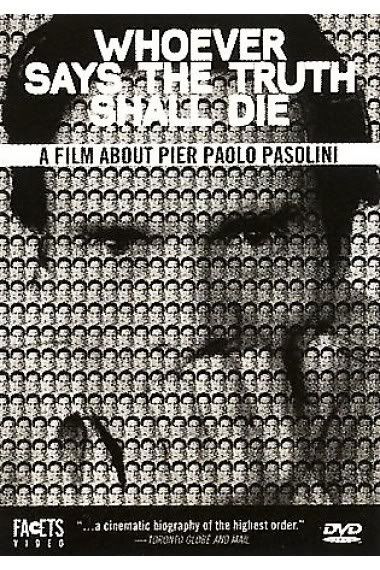Whoever Says the Truth Shall Die (Philo Bregstein, 1981)
 There are few cinematic lives as thoroughly interesting as that of Pier Paolo Pasolini (Fassbinder - of course - is the only one I can think of at the moment). Born of an anti-fascist mother and a Mussolini-supporting father, Pasolini taught school before being fired (although found innocent) for supposedly having sexual relations with his students. He moved to Rome, began writing a lot of highly political poetry, fell in with the Italian Communist party, then was eventually kicked out of the party because he refused to fall in line with the party on every issue. In the meantime, he not only wrote poetry, but novels, his own movies, and helped with other directors' movies (such as Fellini). He was outspoken in his radical political views, which caused him to make Salo, and then was murdered, either by a teenage hustler (the official, government view) or by government assassins (pretty much everyone else's view). While all these facts make for one incredibly interesting life, Philo Bregstein's 1981 documentary is remarkably dull. It's worth a watch for people interested in the life of this brilliant, tormented man, especially for the interviews with Bernardo Bertolucci, who provides some personal insights into his life and death. The other interviews are rather hit or miss, and we hear surprisingly little from the man himself. All that aside, it's a worth effort, but more than anything, it made me wish someone would make a real, full-length (this is only little less than an hour) documentary on the incredibly controversial life of this under-appreciated genius. 6/10 Labels: 1981, philo bregstein, pier paolo pasolini |

Comments on "Whoever Says the Truth Shall Die (Philo Bregstein, 1981)"
post a comment